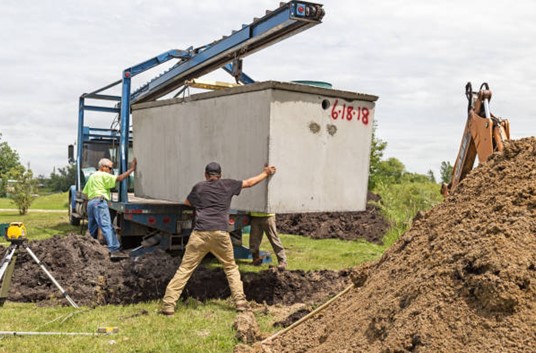Septic systems are vital to homes in areas without access to a public sewer system. While they are efficient and effective when properly maintained, there are many misconceptions surrounding their operation and care. Let’s take a closer look at some common myths and set the record straight so you can take better care of your septic system and avoid costly mistakes.
Table of Contents
1. Septic Systems Never Need Maintenance
A common myth about septic systems is that once installed, they run indefinitely without maintenance. In reality, regular upkeep is essential for proper function. Neglecting the system can lead to backups, costly repairs, or failure. Tasks like pumping the septic tank every 3 to 5 years (depending on system size and usage), inspecting the system, and watching for early warning signs are crucial to keeping it in good working order.
Maintenance is also vital to prevent overloading. If a septic tank becomes too full, solids can escape into the drain field, causing clogs and reduced performance. Regular pumping helps prevent these issues.
2. There Are No Limitations to What You Can Flush Down the Toilet
A common misconception is that you can flush anything down the toilet or pour anything down the drain. Many believe septic systems can handle all types of waste, including grease, chemicals, and non-biodegradable items like wipes and diapers. Unfortunately, this isn’t true.
Flushing inappropriate items, such as wipes, sanitary products, or grease, can clog pipes, damage the septic tank, or disrupt the bacteria that break down waste. To keep your septic system functioning properly, dispose of non-biodegradable materials in the trash and avoid pouring grease or harsh chemicals down the drain.
For more advice about what not to flush down the toilet, check out this informative page from PennState Extension.
3. A Septic System Can Handle Excessive Water Use
Septic systems handle typical wastewater flow but aren’t built for excessive water usage. Overusing water, especially during peak times like multiple loads of laundry or long showers, can overwhelm the system and cause overflow. To prevent this, stagger water-intensive activities and install water-saving devices like low-flow toilets and showerheads. Fix leaks promptly, as small, consistent drips can accumulate and saturate the drain field over time.
4. Septic Systems Are Smelly and Hard to Maintain
Many believe septic systems always produce unpleasant odors and require constant attention. However, with proper maintenance, they shouldn’t emit noticeable smells. Foul odors could signal a problem, such as a leak, clog, or overflow, which requires a professional inspection. With routine care, your septic system can run smoothly without odors. Regular pumping, minimizing waste, and being mindful of what goes down your drains are key to preventing smells.
5. Septic Systems Are the Same Everywhere
Not all septic systems are the same. The design, size, and components depend on factors like local regulations, soil conditions, and property size. For example, in areas with poor drainage or clay-heavy soil, a more advanced system may be needed to prevent wastewater pooling. A system tailored to your needs is essential. Partnering with a trusted septic professional ensures you get the right system designed to address the unique challenges of your location.
6. If You Don’t See Any Problems, There Aren’t Any
Many homeowners mistakenly believe that if there are no visible issues, their septic system is in perfect condition. However, problems often develop slowly, and by the time signs like slow drainage, backups, or odors appear, the issue may be severe. Regular inspections and proactive maintenance are key to identifying issues early. A professional septic contractor can detect potential problems before they lead to costly repairs.
7. The Drain Field Can Handle Anything
The drain field is essential for absorbing and filtering wastewater before it’s released into the ground. However, many people mistakenly think it can handle anything. Overloading it with excessive water, waste, or plant roots can cause system failure. To protect your drain field, avoid planting trees or shrubs nearby, as their roots can block the system. Additionally, avoid parking heavy equipment or vehicles on the drain field, as it can compact the soil and reduce its ability to filter wastewater properly.
8. Septic Tanks Are Difficult to Install
Some people hesitate to install a septic system because they think it’s a long, complex, and costly process. While it requires some planning, the installation is not as difficult as it seems. An experienced septic contractor will assess your property, design an appropriate system, and complete the installation efficiently. The key is selecting a reliable contractor who understands local regulations and soil conditions to ensure proper installation and long-term functionality.
Keep Your System in Tip-Top Shape
If you’re unsure about the health of your septic system or need professional assistance, don’t hesitate to reach out to experts. For trustworthy septic service in Miami, be sure to learn more and contact A Aaron Super Rooter for all your septic needs. This great septic service is here to help with all your septic maintenance, repair, and installation needs.

